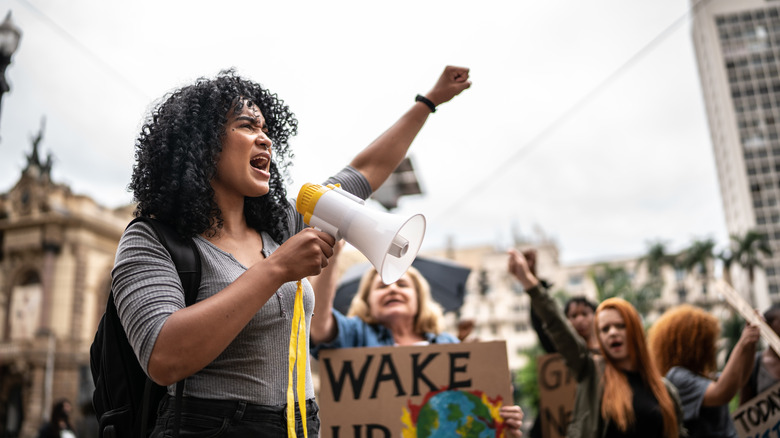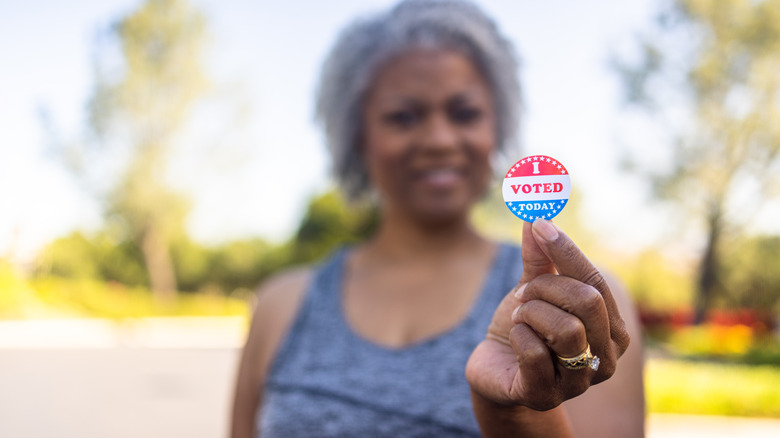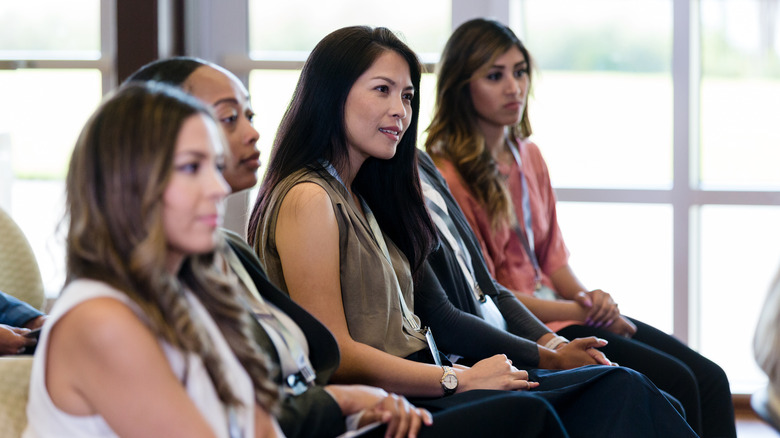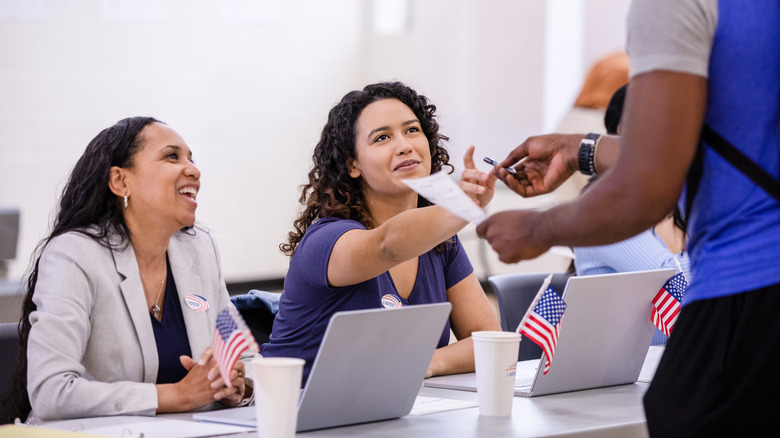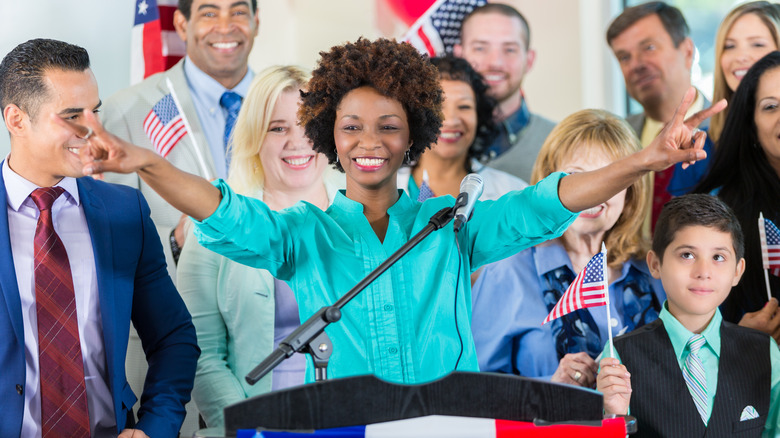How To Get Involved In Local Politics - Because More Women In Power Starts At Home
As Mahatma Gandhi once said, "Be the change you wish to see in the world," and that goes for women participating in local politics too. Sadly, data shows that women are just as underrepresented in local politics as they are at the state and federal levels. Rutgers University's Center for American Women and Politics (CAWP) found that as of 2021, women only accounted for 30.5% of municipal officeholders, including mayors, city council members, and city commissions. For reference, women only account for a meager 30.9% in state legislation and an even more alarming 26.5% of the seats in the United States Congress. "There's always been this assumption that, if we just went down a little further, if we just got to a more local level, that we would see a lot more women there. And we have long suspected that was, in fact, a myth. And the data now bears that out," the director of CAWP, Debbie Walsh, told USA Today about the disparity.
Fortunately, we can change those stats. While it's important to have more women holding positions in local office, it's even more important for more women to be involved in local politics as a whole. Here are some ways you can get involved in your local politics because we all know that having more women in power starts at home.
Vote
This probably goes without saying, but the easiest and most effective way to get politically involved at the local level and effect change in your community is simply to vote. "Elections have consequences ... Our vote is our power," Cambridge Mayor Sumbul Siddiqui declared while participating on a panel about the importance of civic engagement at Harvard's John F. Kennedy School of Government, according to The Harvard Gazette.
This rings especially true when it comes to local elections. "Local elections are the time where we are really deciding on the people who make decisions that truly impact our day-to-day lives," King County, Washington Elections Communications Officer Halei Watkins told Yale Daily News. "At the local level, we see folks making decisions about how our tax dollars are spent on schools and our roads and our parks." And the best part of all? Your vote in a local election may go a lot further than it would an election at the state or national level, namely due to the notoriously low voter turnout of these particular elections. To ensure you are registered to vote, visit vote.gov. or go to your local DMV office. You can also download the National Mail Voter Registration Form and mail it in.
Attend city and county meetings
Make no mistake — getting involved in local politics isn't over once you cast your vote. If you want to stay involved, you have to put yourself out there and attend some local meetings. Think city council meetings, commissioner meetings, and even board of education meetings. "Democracy doesn't begin and end on election day. Citizens should continue to be an active partner with their elected leaders and ensure that our elected leaders continue to be in constant dialogue with their constituency," Glynda Carr, president, CEO, and founder of Higher Heights for America told Marie Claire. "If we're going to build a better community and a better nation that we all can believe in, it's about partnership," she added.
To learn more about your local government meetings and how you can attend, check your local city and county's official websites for the dates, times, and locations. While most meetings are open to the public, there are times when certain meetings are restricted to designated members only.
Donate your time and money
Another way to get involved in local politics is to donate money to local campaigns. You don't have to donate an arm and a leg to make a difference — in fact, more people donating lower amounts of money can be more powerful than large amounts from one or two wealthy donors. "The solution to the problem of money in politics is not less money, but more money from more people," Steve Hilton, the co-founder of Crowdpac explained to The New York Times.
If you don't have the means to donate cash to local campaigns or non-profit organizations, give the gift of your time instead. Founder and CEO of She Should Run, Erin Loos Cutraro, explained to Marie Claire that it's worth considering volunteering for candidates who represent populations in your community that are underrepresented: "There are real, systemic barriers that are in place that are keeping Black women and low-income women out of these positions of power. It's doing a disservice to us all."
You can also make a difference by serving as an election poll worker. "Not having enough poll workers means closed polling locations and longer lines, and further to travel," Erika Soto Lamb, co-founder of Power the Polls told The Cut. "The effect is voter disenfranchisement, and the people who are disenfranchised the most are those who can't afford to wait ... younger people ... people from marginalized communities of color, and also low-income voters."
Run for office
Last but not least, you can always run for office yourself. If issues like menstrual inequity in prisons and how some states near-total abortion bans are creating maternal health care crises, you should consider running for office locally in order to gain an understanding of how to enact change on the issues you care about.
But don't just take our word for it. "If you are truly fighting for change [at a local level], you understand that it's going to go into a political realm because you have to go to your mayor and commission. You have to speak to your police department. You have to start understanding policy, who's in charge, who's making decisions," Mokah Jasmine Johnson told Marie Claire, shortly after announcing that she was throwing her hat in the ring for Georgia House District 117. According to Johnson, though she had never been interested in politics prior, her work as an activist spurred her decision to run. Regardless of whether or not you wish to run for office, more women getting involved in local politics in any way, shape, or form, is a win.
